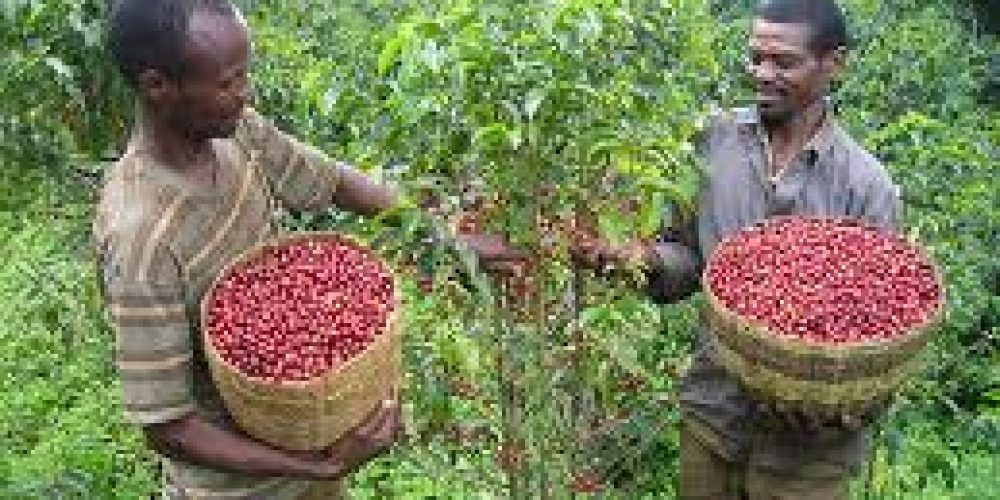February 15, 2019 Newbusinessethiopia
Ethiopia, the largest coffee producers is set to triple its coffee production in the coming five years by improving its production and marketing system.
The planned marketing system allows coffee growers to export their products directly. The government expects to harvest 600,000 tons of coffee this fiscal year October to September. The plan now is triple to 1.8 million tons by the year 2024.
Meanwhile Ethiopia’s coffee production remains largely unchanged for 2018/19 fiscal year from the previous year at 426,000 metric tons, according to one of the major buyers of Ethiopian coffee, the United States Office of Agricultural Affairs estimate.
Old coffee trees will be replaced by new coffee seedlings to boost productivity. This is indicated by General Director of Ethiopian Coffee and Tea Authority Adugna Debella, who indicated that his authority has also planned to target East Asian market.
In addition to the existing coffee plantations it is estimated that Ethiopia has an additional 5.4 million hectares of suitable land available for growing coffee.
Ethiopia currently sells most of its coffee to Europe and the United States and Japan. The United States is the fourth largest buyer of Ethiopian coffee, accounting for nearly 10% of total exports by volume.
In addition Italy, Saudi Arabia, the United Kingdom, Belgium, Spain, France and Sudan are the major importers of the Ethiopian Arabica coffee.
Coffee is the major export item of Ethiopia generating around $800 million annually, representing 25% to 30% of of the total export earnings of the country.
Currently around 20% of the coffee production of Ethiopia is reportedly coming from forest often labeled as wild coffee. Arabica coffee has its origin in Ethiopia.
Ethiopia is the largest coffee producer in Africa and the fifth largest producer in the world and accounts for 4.2% of the global coffee production. Ethiopians are among the largest coffee consumers in Africa and the coffee consumption trend in Ethiopia is growing at a steady pace. Almost 50% of the country’s coffee production is consumed domestically.
Ethiopian Arabica coffee exports account for 25-30% of the region’s total export revenue. Ethiopia accounts for 29% of the African coffee trade, according to Mordor Intelligence report on Ethiopian coffee.

